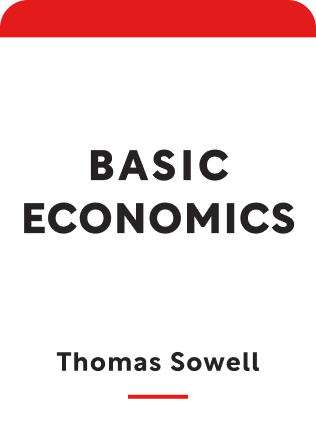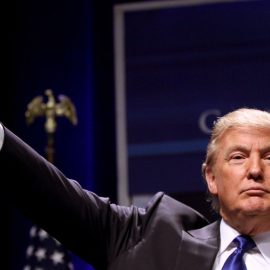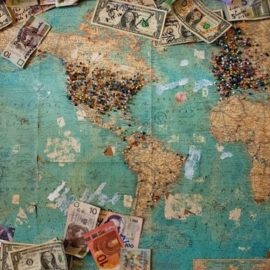

This article is an excerpt from the Shortform book guide to "Basic Economics" by Thomas Sowell. Shortform has the world's best summaries and analyses of books you should be reading.
Like this article? Sign up for a free trial here .
Why do politicians adopt policies that seem so bad for citizens? Why is it so easy for politicians to cover up their mistakes?
In a popularly elected government, the incentive is to do what is popular and garners votes, even if the consequences are worse than those of doing nothing. Even worse, politicians are spending taxpayer money, not their own, so frivolous spending hurts them little.
Here is a quick look at what really drives political decision-making.
In the Mind of a Politician
To understand what drives political decision-making, contrast political elections with the marketplace. In the marketplace, decisions can be made 1) instantaneously 2) for individual goods and services 3) that are wholly finished. In contrast, in politics, candidates 1) are chosen only once every several years, 2) come as a “package deal”—all their stances must be accepted or rejected in whole, 3) can only convey promises, not finished accomplishments, and thus constitute speculation.
No politician wants to be smeared as being against something that people generally value, like being accused of being “soft on crime” or against child safety. However, this can lead to categorical thinking, where certain things are considered absolutely bad and must be stamped out, regardless of the cost-benefit tradeoff. Constituents may contribute to this by having little grasp of the complexities of policy, instead falling prey to emotionally charged rhetoric that is easier to understand. This can cause policies to be set that are net negative. Because policies typically have some conceivable benefit, the trend is toward more regulation, with few constraints on their growth.
Nor do politicians want to disrupt large voting blocs, like the elderly, government employees, farmers, or factory workers. This naturally leads to large noticeable changes for specific groups that are spread subtly across the larger population, such as tariffs to protect manufacturing jobs or protection of pensions, while the nation’s taxpayers pay the price.
Even worse, political timelines are often much shorter than economic timelines, preventing the full consequences of policies from being connected to the original policies. For instance, changes to education can take over a decade to show material results. Thus politicians may push for shorter-term, less effective programs like building fancier buildings, rather than refreshing the curriculum.
Mistakes are handled differently by government vs market players. In the market, companies must reverse mistakes quickly or perish. In politics, admitting mistakes loses votes, and mistakes take long legislative periods to correct. So it becomes easier to disguise mistakes or merely find a scapegoat.
Some believe that politics is more democratic since each person gets one vote, as opposed to the marketplace where people with more dollars get more votes. But this ignores how wealthier people have better education and more time and resources to devote to political activities.
Finally, few people put as much time into deciding who to vote for as they do into deciding what job to take or whether to buy a house. (Shortform note: this is probably caused by a feeling that your vote has little effect. This belief in turn elects politicians who aren’t punished by withdrawing votes, which in turn reduces the feeling that your vote has an effect.)
People also have short memories and attention spans, so initial furor may spark legislation that is not closely monitored in the future. This allows for manipulation by politicians to reallocate funds that were once designated for a specific purpose. For example, a gasoline tax might have been meant to maintain highways, but years later, it is diverted to finance bank interventions instead.
Furthermore, large governments have many branches that have competing incentives. This can cause inertia, where departments should have been privatized long ago but continue fighting to justify their existence (such as the post office, as the author implies).
Government Intervention
Due to the incentives above, governments are often pressured to “do something,” even when there is nothing they can do to make things better. To wait and watch is to risk political accusations of indecision and indifference. It’s better to be seen as a person of action, regardless of whether that action is actually going to help the situation.
Healthy lack of intervention includes allowing recessions to run their natural course and lead to recovery. In the Great Depression, the unemployment rate never reached 10% for the 12 months following 1929’s stock market crash. But after unprecedented government interventions like tariffs and wage floors, the unemployment rate soared over 20% for 35 months. These responses are now widely considered to be bad moves.
In contrast, President Harding did largely nothing in response to a 1921 economic downturn except reduce government spending, and unemployment recovered the following year.
Miscellaneous Points About National Economies
- The fallacy of composition misleads impressions of the overall economy by:
- Assuming that what applies to a part applies to the whole
- Ignoring interactions among individuals
- An intervention to save jobs in one industry may be at the expense of creating jobs in another industry
- Currencies used throughout history
- In WW2 POW camps, cigarettes were used as money, showing phenomena like interest rates and Gresham’s law (the less valuable currency is the one that is circulated – here, the best cigarettes were kept for consumption).
- In Micronesia, large rocks functioned as money. They couldn’t be picked up, but what circulated was ownership of these rocks.
- Liquidity
- An asset is considered liquid when it can be converted to money without losing its value. Selling a diamond for a dollar quickly does not make it liquid.
- Federal Reserve
- Because the Fed has a huge influence on the national economy, chairmen have “learned to speak in highly guarded and Delphic terms” to avoid disrupting markets.
- Differences in national culture
- UN reps have diplomatic immunity from local laws; Kuwaiti diplomats recently had 246 unpaid parking tickets in NYC, while those from Denmark, Japan, and Israel had 0. Sowell argues this reflects the culture’s honesty.
- Political rhetoric
- “Catch words can delay further analysis for fifty years” – Justice Holmes. Phrases like “tax cuts for the rich” or “death panels” conjure such strong feelings that they become political poison, and those issues are left untouched.

———End of Preview———
Like what you just read? Read the rest of the world's best book summary and analysis of Thomas Sowell's "Basic Economics" at Shortform .
Here's what you'll find in our full Basic Economics summary :
- Why we use money, rather than bartering our services with each other
- Why some nations prosper, while others stay poor despite vast natural resources
- How rent control might actually reduce housing supply and quality






